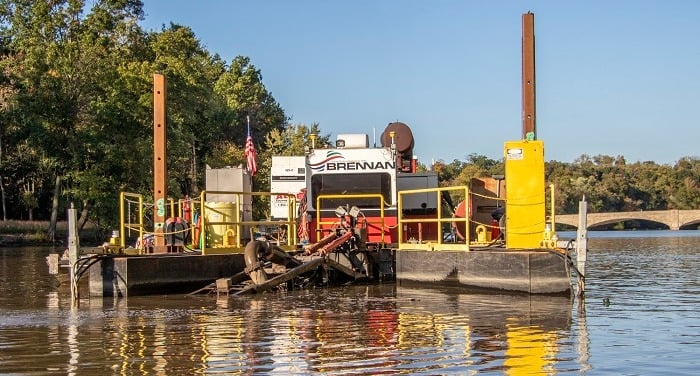The work of a dredge operator is often underappreciated so it's important to take a step back and appreciate the complexity and uniqueness of his or her role in the success of a dredging project. Here, we take a closer look at the essential role of a dredge operator.
The Importance of Our Operators
Dredge operators, whether on a small project or a mega-project, wear many hats and have a great deal of responsibility for both to the dredge and the supporting team. They are the captain of their ship. They are the point at which the “magic happens.” And their performance is largely linked to whether we are financially successful or unsuccessful on the project.
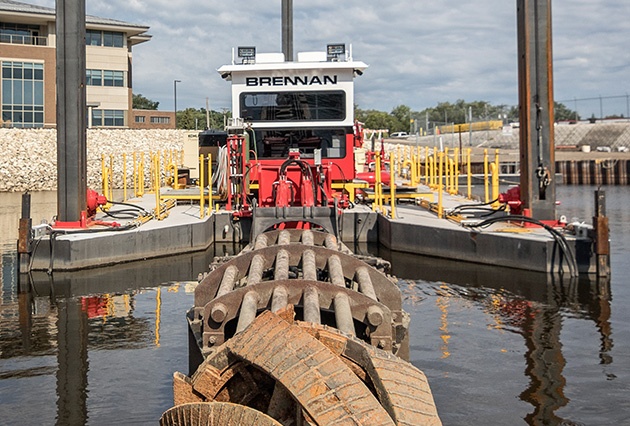
Despite having the best seat on a project, the dredge operator cannot actually see what he or she is digging.
Long story short, if there is only one dredge on the job, they are the single most important person on the job at that time. Vice President Greg Smith will tell you, “If that cutterhead isn’t turning, the entire project is down.”
How Does One Become a Dredge Operator?
Becoming an operator is a hands-on, tiered approach to learning “how to pump” or, in technical terms, hydraulic transport of sediment. Most future dredge operators begin as “booster hands” where they learn how to operate and maintain a hydraulic pump as part of a larger hydraulic transport system.
Those proficient with running a booster become a dredge engineer, where they assist the operator onboard a working dredge and learn the basics of operating, maintaining, and excavating through computer-guided software. When the engineer acquires a good understating of the basics, they will get the opportunity to “spend time in the seat” or to “pull levers,” which is dredge slang for operating the dredge.
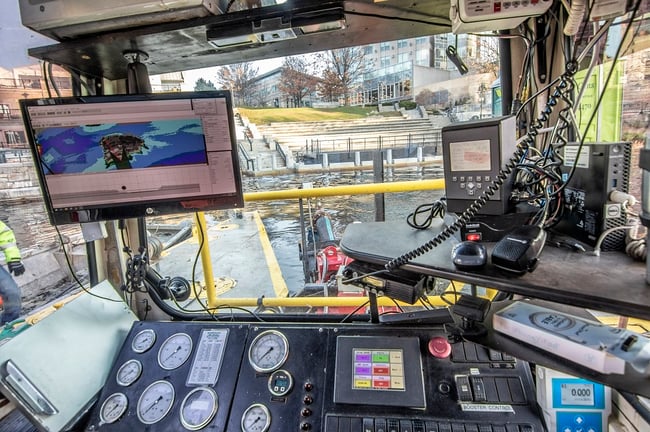 A dredge operator must become proficient at running several systems at once.
A dredge operator must become proficient at running several systems at once.
It is the dredge engineer’s responsibility during this time to learn as much as possible, because once they have made the cut to the next level, they will be the one directing the ship and training future dredge operators. Since there isn't a required operating license specifically for dredging, the dredge operator must give their approval when the engineer is ready to become an operator.
What Does the Day of Being a Dredge Operator Consist Of?
The day starts with a safety briefing. After that, the operator, superintendent, foreman, and project manager develop a plan for the day. These individuals work together in concert to plan the day’s direction and workflow. Quite simply, the other three individual’s jobs are to support the operator so he or she can focus on maximizing production while digging to grade. Once the plan is in place, it is out to the dredge.
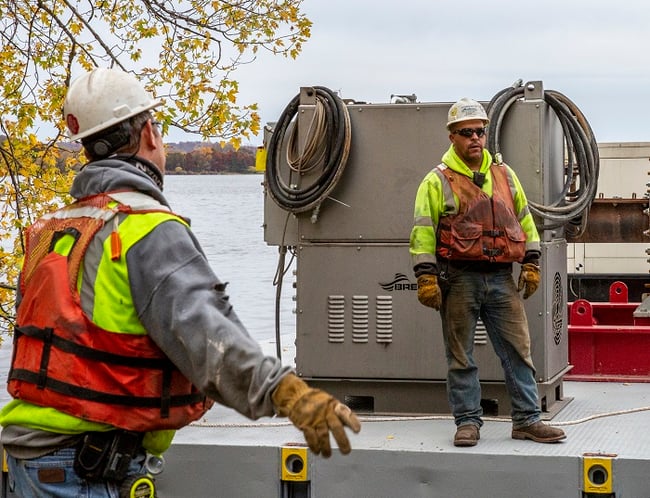
Once on the dredge, start-up procedures commence. This not only includes startup of the dredge itself, but the entire transport system connected behind it. There may be several miles of pipeline, multiple boosters, and a dewatering plant connected to the back of the dredge. Every piece has to be ready to go before the operator can start pumping.
When all checks are in place and status has been communicated throughout the rest of the hydraulic transport system, the dredge operator starts digging. Because they can’t visually see the material, they rely on computer systems for positioning and digging depths.
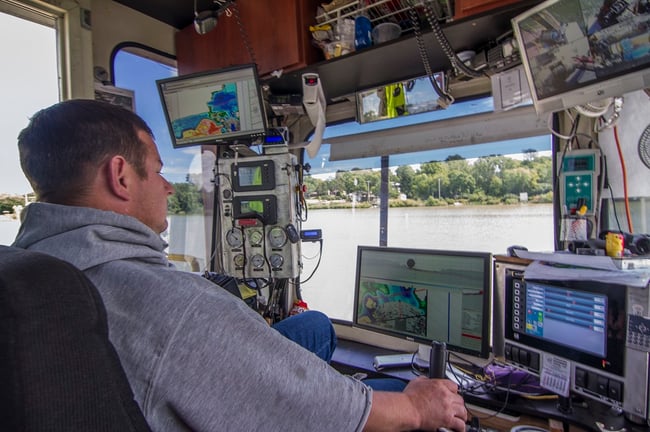 Dredge operators don't get any do-overs.
Dredge operators don't get any do-overs.
Dredge operators use skilled and steady hands to operate their equipment. Running a dredge is almost an artform where there is a balance between production and accuracy. They shape the bottom according to elaborate designs that may have taken years to develop. They do this day in and day out, until they have forever scribed their signature along the riverbed. Operators are the heartbeat of our complex environmental remediation projects. These individuals are true marine professionals.
For details on Brennan’s dredging capabilities, please visit our Environmental Services page and connect with our team.
Do you have what it takes to be a dredge operator? Learn more about an operating career in the Leverman’s Challenge. Current Brennan career opportunities are continually updated on our Careers page.

